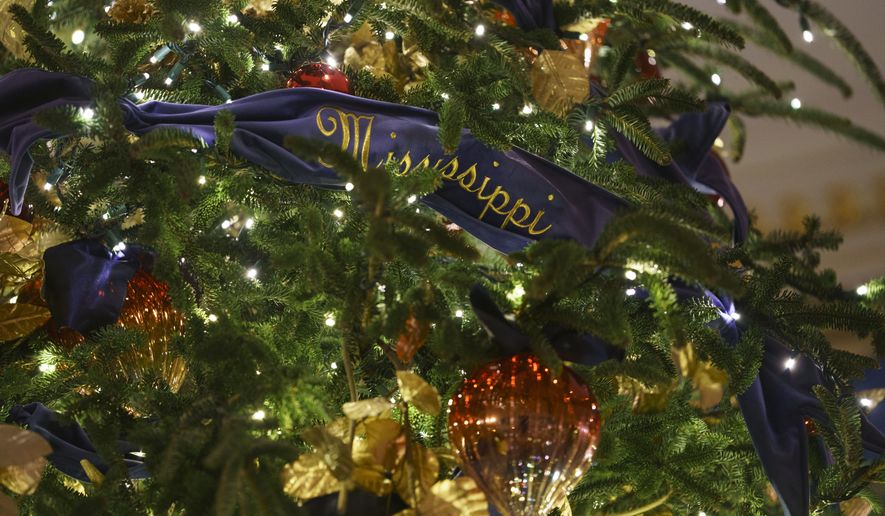When President Trump and first lady Melania Trump lit the National Christmas Tree Wednesday, it signaled the start of more expensive holiday displays across the country thanks to the trade war with China.
Mr. Trump’s tariffs on China are driving up the cost of Christmas lights this year, warned the Tariffs Hurt the Heartland business group.
The 10 percent tariff on Christmas lights was among duties Mr. Trump slapped on $200 billion of Chinese goods in late September — smack in the middle of the peak season for increasing holiday inventory.
The higher costs are being passed on to Christmas shoppers, said former GOP Rep. Charles Boustany, spokesman for Tariffs Hurt the Heartland.
“This is another instance when these tariffs are nothing more than a tax on businesses and working families,” he said. “Raising costs for businesses and consumers during the holidays doesn’t do anything but punish Americans who, polls show, want nothing to do with this trade war.”
Nearly all Christmas lights sold in the U.S. are imported, with more than 80 percent — and almost all LED lights — coming from China in 2017, according to U.S. Census data.
Analysts predicted that the tariffs would not cause big price increases for shoppers this Christmas season. However, more tariffs and higher tariffs, as Mr. Trump has threatened, could produce big price increases next year.
A string of 100 colored LED Christmas lights at a Home Depot in Annapolis costs $17.98. That’s about the same as last year, according to a store manager.
The National Christmas Tree includes 74,000 LED lights provided by GE Lighting, which imports lights from China and has lit the national tree for the past 56 years in partnership with the National Park Foundation.
Mr. Boustany, of Louisiana, urged Mr. Trump to strike a deal to end the tariff war when he meets this week with Chinese President Xi Jinping at the G-20 summit in Argentina.
“Millions of Americans are counting on him to make that deal,” Mr. Boustany said.
Mr. Trump says he’s ready to make a trade deal when Beijing ends unfair trade practices such as theft of intellectual property, forced transfer of technology from American companies doing business in China, and high tariffs and other trade barriers on U.S. goods.
But top Democrats urged the president to resist Chinese entreaties, saying some pain now for U.S. businesses and consumers is worth it if it means breaking China’s trade barriers.
“We need to stay the course until China feels the heat,” said Senate Minority Leader Charles E. Schumer, a New York Democrat who admits Mr. Trump’s trade policy toward China is one area where the two men had seen eye to eye. But he worried Mr. Trump will try to cut a face-saving deal.
“Backing off on China for some quick handshake agreement without substantive, real, deep, substantive commitments will be seen as a victory by no one. It will be seen as capitulation,” he said.
The president has used tariffs and other get-tough measures to force a renegotiation of the three-way trade deal among the U.S. Canada and Mexico, as well as get the European Union to open trade talks.
The tariffs that include Christmas lights will increase to 25 percent Jan. 1 unless Beijing begins earnest trade negotiations, the president said.
Those taxes are on top of tariffs the Trump administration previously imposed on $100 billion of Chinese goods.
Mr. Trump also has teed up another round of duties on another $267 billion worth of Chinese goods, which would impose punitive duties on nearly all Chinese products sold in the U.S.
The president’s top economic advisers have argued that Americans can absorb short-term price increases from the tariffs.
Government data compiled by the Trade Partnership for Tariffs Hurt the Heartland show that as of September, U.S. businesses paid $4.4 billion in import tariffs, including a $1.4 billion increase in tariffs on products that have been targeted by the administration’s tariff actions. The $4.4 billion in tariffs paid in August and September are unprecedented in U.S. history, according to the business group.
• S.A. Miller can be reached at smiller@washingtontimes.com.




Please read our comment policy before commenting.